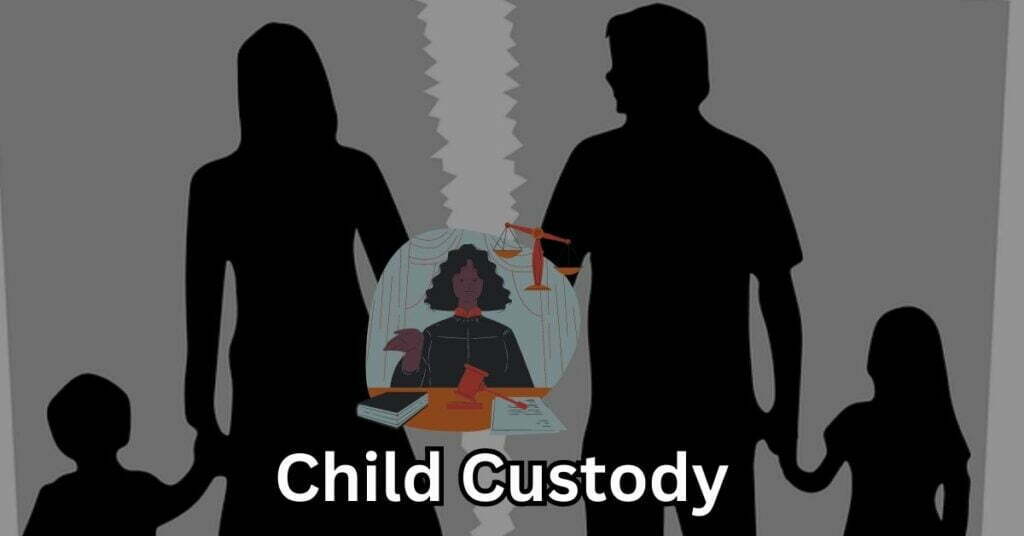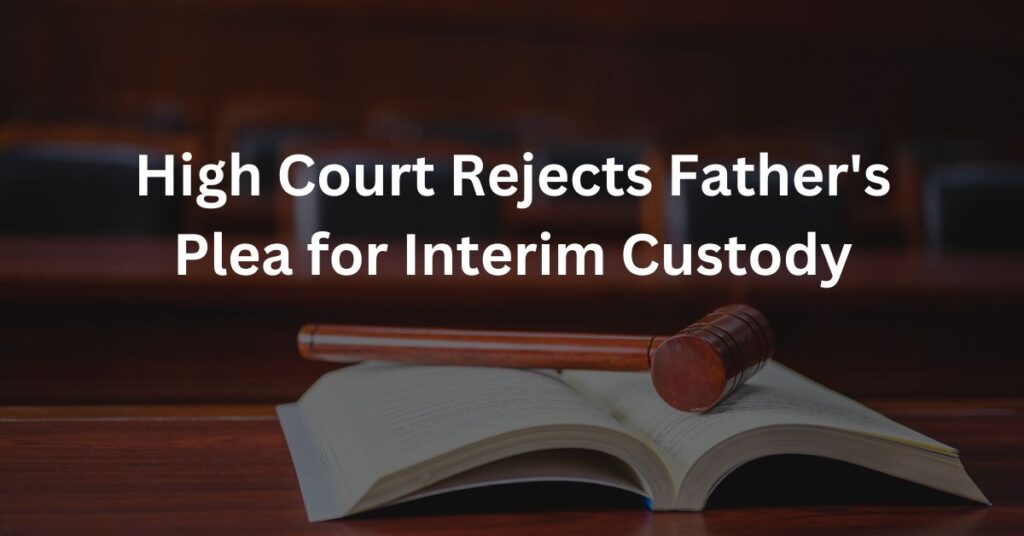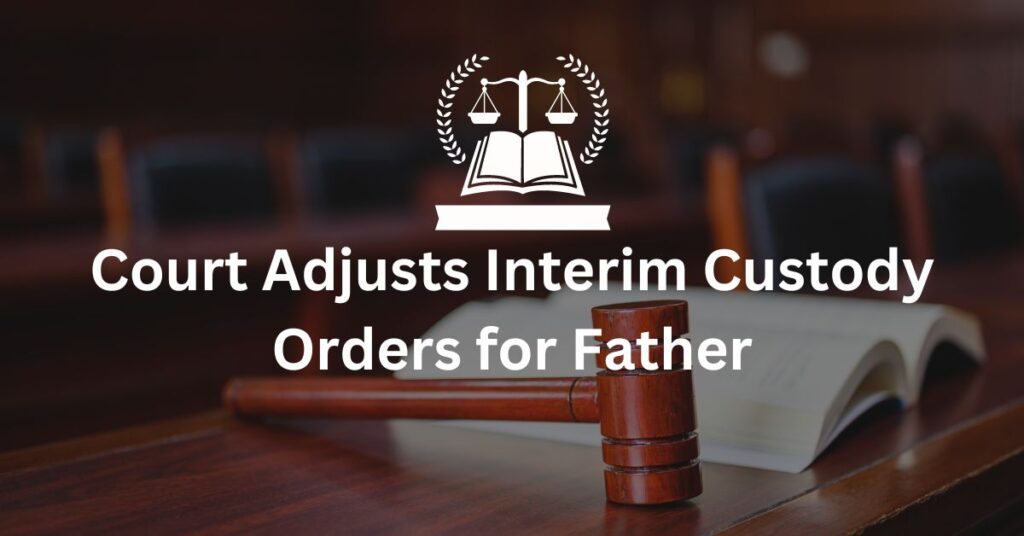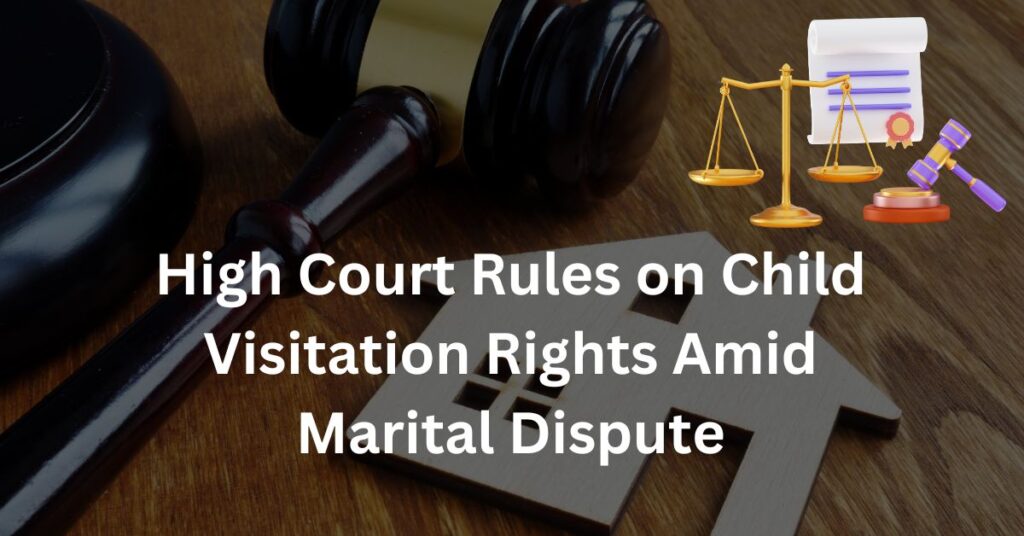At Indian Family Laws, we are dedicated to providing you with comprehensive and insightful information on child custody. Our aim is to equip you with the knowledge and understanding necessary to navigate the complexities of child custody cases. In this guide, we will delve into the various aspects of child custody, including legal considerations, factors influencing custody decisions, and practical tips for a successful custody arrangement.
Table of Contents
ToggleIntroduction
Child custody matters arise when parents separate or divorce, requiring decisions to be made regarding the care and upbringing of their children. Understanding the legal framework, key factors, and practical considerations involved in child custody is crucial for achieving a favorable outcome.
Types of Child Custody
- Physical Custody
Physical custody refers to where the child resides primarily. It can be awarded solely to one parent or shared between both parents, depending on the circumstances and the best interests of the child.
- Legal Custody
Legal custody involves decision-making authority regarding the child’s welfare, including education, healthcare, religion, and other important aspects of their upbringing. It can be granted to one parent or shared jointly.
- Sole Custody
Sole custody grants one parent exclusive physical and legal custody of the child. The other parent may have visitation rights, but they do not share decision-making authority.
- Joint Custody
Joint custody involves both parents sharing physical and legal custody of the child. It requires effective co-parenting and collaboration to make decisions in the child’s best interests.
Factors Considered in Child Custody Cases
When determining child custody, several factors are taken into account to ensure the child’s well-being and best interests are upheld. It is important to understand these factors to present a compelling case.
- Best Interests of the Child
The court always prioritizes the child’s best interests when making custody decisions. This includes considering their physical and emotional needs, safety, and overall well-being.
- Parent-Child Relationship
The quality of the relationship between each parent and the child is a significant factor. Courts assess the level of involvement, bonding, and emotional connection between each parent and the child.
- Stability and Continuity
Providing a stable and consistent environment for the child is crucial. Factors such as maintaining a stable residence, school stability, and minimal disruptions to the child’s routine are taken into consideration.
- Co-Parenting Ability
The ability of parents to effectively communicate, cooperate, and make joint decisions in the child’s best interests is highly regarded. Courts assess the willingness of parents to encourage a healthy relationship with the other parent and promote a positive co-parenting dynamic.
- Child’s Wishes (Depending on Age)
In certain cases, the court may take into account the child’s preferences regarding custody arrangements, particularly as they mature and can express their views. The weight given to the child’s wishes depends on their age and maturity level.
Legal Process of Determining Child Custody
Understanding the legal process involved in determining child custody can help you navigate the proceedings effectively.
- Filing a Custody Petition
To initiate the child custody process, one parent typically files a custody petition with the appropriate court. The petition outlines the desired custody arrangement and presents the reasons why it is in the child’s best interests.
- Mediation and Alternative Dispute Resolution
In many cases, parents are encouraged to participate in mediation or alternative dispute resolution methods. These processes provide an opportunity to negotiate and reach a mutually agreeable custody arrangement with the help of a neutral mediator.
- Court Proceedings and Evaluations
If mediation fails or is not required, the custody case progresses to court proceedings. Both parents present their arguments, evidence, and witness testimonies before a judge who will make the final custody decision. In some instances, the court may order evaluations by professionals such as psychologists or social workers to assess various aspects.
- Custody Orders and Modifications
Once the court makes a custody determination, a custody order or agreement is issued. This document outlines the specific terms and conditions of custody, including visitation schedules, decision-making authority, and other relevant details. It is important to note that custody orders can be modified in the future if there are significant changes in circumstances or if modifications are in the child’s best interests.
Tips for Successful Co-Parenting
Co-parenting effectively is essential for maintaining a healthy and nurturing environment for the child. Consider these tips for successful co-parenting:
- Effective Communication
Open and respectful communication between co-parents is key. Regularly sharing information about the child’s well-being, school updates, and important events promotes a supportive co-parenting relationship.
- Creating a Parenting Plan
Developing a comprehensive parenting plan that addresses key aspects of the child’s life, including schedules, holidays, and decision-making processes, can minimize conflicts and provide a clear framework for co-parenting.
- Resolving Conflicts Amicably
Conflicts may arise during co-parenting, but it is crucial to address them in a calm and respectful manner. Focusing on the child’s best interests and seeking mediation or professional assistance when needed can help resolve conflicts effectively.
- Prioritizing the Child’s Well-being
Always keep the child’s well-being at the forefront. Encourage their emotional growth, support their interests, and promote a positive co-parenting environment that nurtures their development.
Ensuring the Child's Best Interests
To ensure the child’s best interests are met, consider the following aspects:
- Maintaining a Stable Environment
Providing a stable and secure living environment for the child is vital. Stability in their residence, school, and daily routine fosters a sense of security and promotes their overall well-being.
- Encouraging Emotional Support
Promoting emotional support and a strong parent-child bond is crucial. Encourage open communication, active listening, and empathy to create a nurturing environment for the child’s emotional development.
- Promoting a Healthy Parent-Child Relationship
Both parents should actively participate in the child’s life and maintain a positive and healthy relationship with them. Encourage quality time, shared activities, and fostering trust and respect between the child and each parent.
- Facilitating Educational and Extracurricular Activities
Supporting the child’s educational and extracurricular pursuits is essential. Stay involved in their academic progress, attend school events, and encourage their participation in activities that promote their interests and personal growth.
Frequently Asked Questions
Q. Can grandparents seek custody rights?
Yes, in certain circumstances, grandparents may seek custody rights if it is determined to be in the child’s best interests. However, laws regarding grandparent custody rights vary by jurisdiction.
Q. How is child custody decided in high-conflict cases?
In high-conflict cases, the court carefully considers all relevant factors, including the child’s best interests, the ability of each parent to provide a stable environment, and any evidence of abuse or neglect. Professional evaluations and testimonies may also be taken into account.
Q. What role does domestic violence play in custody cases?
Domestic violence is taken very seriously in custody cases. Courts prioritize the safety and well-being of the child and may limit or deny custody to a parent with a history of domestic violence or abusive behavior.
Q. How can a parent modify a custody order?
A parent can petition the court for a modification of a custody order if there are substantial changes in circumstances, such as relocation, remarriage, or changes in the child’s needs. The court will evaluate the proposed modifications based on the child’s best interests.
Q. What happens if one parent violates a custody order?
By following these guidelines and understanding the intricacies of child custody, you can navigate the process more effectively and strive for a positive outcome that ensures the best interests of your child are upheld.



